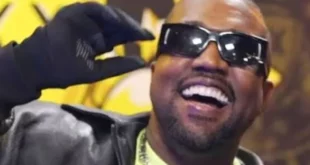Stuff Black People Don’t Like
May 5, 2015
Why couldn’t $130 million transform one of Baltimore’s poorest communities? Why do 15 Baltimore neighborhoods have lower life expectancies than North Korea? Why do Baltimore police struggle to close murders with few talking?
If you didn’t answer “black people” for all three questions, you don’t understand the joke that is America in 2015.
Seriously.
Blacks.
Race.
That’s it. Case-closed.
While a “Victory Rally” celebration was held in 65 percent black Baltimore on May 2 to celebrate the black State’s Attorney filing racially charged – well… to blacks, all police are white – indictment of six Baltimore Police Department officers, the “Lord of the Flies” truly has come to a once-proud city boasting the best traditions of Europeans in America.
Where once the sons and daughters of Europa birthed civilization in Baltimore, blacks on May 2 danced in the streets of North Avenue to the tune of victory over whitey…
But something happened in the summer of 2014 in Baltimore truly displaying the civilization whites once created in the city is on life support. And it might be time to pull the plug. [Outrage follows Baltimore’s ‘deeply flawed’ youth curfew decision: Law passed to try to help reduce violent crime and juvenile arrests, but critics say curfews are ineffective and discriminatory, The Guardian, 8-12-14]:
Amid chants of “no youth curfew”, Baltimore police began enforcing a controversial new measure requiring the city’s youngest residents to be off the streets by 9pm. The new curfew took effect on Friday night.
“We have kids that are falling through the cracks,” the city’s mayor, Stephanie Rawlings-Blake, said in defense of the law, which the city says is meant to protect children. “Turning a blind eye isn’t helping any of these kids.”
Youth advocates in the city agree there is a problem with juvenile delinquency, but say a curfew is not the solution.“You’re not going to get that by having cops picking up kids in vans and taking them to curfew centers,” said Jason Tashea, the juvenile justice policy director at Advocates for Children and Youth, which opposed the curfew law.
Curfew laws have long pitted youth advocates against policymakers and divided parents and residents. Baltimore’s law, which triggered charged public debate in a crime-stricken city, was no exception.
Critics say curfews are ineffective and discriminatory, and have the potential to entangle young people – especially teens from minorities and low-income groups – in the criminal justice system. But supporters, who in Baltimore include the mayor and police commissioner, say the city’s law is designed to do the opposite, by identifying vulnerable youths before they fall into crime.
Out past curfewBaltimore’s new ordinance – said to be among the strictest in the country – expands the city’s current curfew law by introducing graduated curfews for unaccompanied children and teens.
Under the law, approved by the city council in June, children 13 and younger must be off the streets by 9pm, and those aged 14-16 must be indoors by 10pm on school nights and 11pm on weekends and during the summer.
In step with national trends, violent crime and juvenile arrests are down in Baltimore, but the city is still plagued by relatively high rates of drug crime and gang violence.
This is especially true in minority and low-income neighborhoods with an already strong police presence.Police commissioner Anthony Batts has said delinquent juveniles are partly responsible for the persistent crime in these areas, and believes a stricter curfew will help. Batts pushed for a curfew law in his previous post as Oakland police chief.
‘This is not about criminalizing young black children’Some of the strongest criticism of the law has come from those who believe it’s shrouded in discrimination.
“The administration in this city is saying that this is an opportunity to reach children, but what nobody is really talking about is that this is creating yet another negative interaction between law enforcement and what’s going to be predominately low-income and minority youths,” said Al Passarella, research director at Advocates for Children and Youth.
Nearly two-thirds of Baltimore’s 620,000 residents are black, according to US census data.Passarella, along with his colleague Tashea, believe the law will lead police to racially profile young black men in low-income neighborhoods.
Both Passarella and Tashea, as well as Kumar at the ACLU, said they are worried that enforcing the curfew could actually cause a spike in youth arrests as a result of police stopping more young people. The city has rejected such criticism.
“This is not about criminalizing young black children, but to reach them before law enforcement,” Rawlings-Blake, the mayor, said during a public forum in July.The city has said that police will neither arrest nor place handcuffs on the young people detained for breaking the curfew.
Read those lines of Mayor Rawlings-Blake from August of 2014, then recall her infamous words from March of 2015: “Let them loot, it’s only property.” “Let them loot, it’s only property.” [‘Let Them Loot, It’s Only Property’: LEO Source Claims Baltimore Mayor Ordered Cops to Stand Down, The Blaze, 4-29-2015]
Oh… and those wanted to destroy… “space to do that.” [Baltimore mayor defends riot response, The Hill, April 28, 2015]
65 percent black Baltimore isn’t a food desert.
65 percent black Baltimore isn’t a pharmacy desert.
65 percent black Baltimore is a civilization desert.
 Daily Stormer The Most Censored Publication in History
Daily Stormer The Most Censored Publication in History



